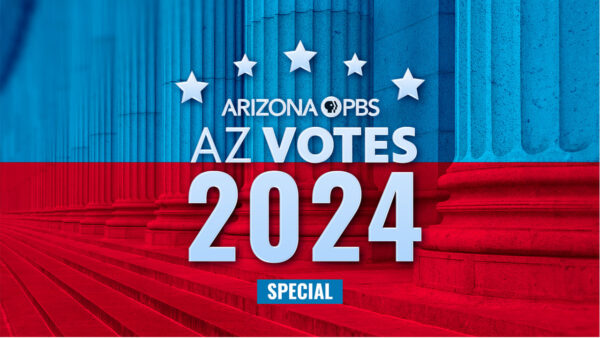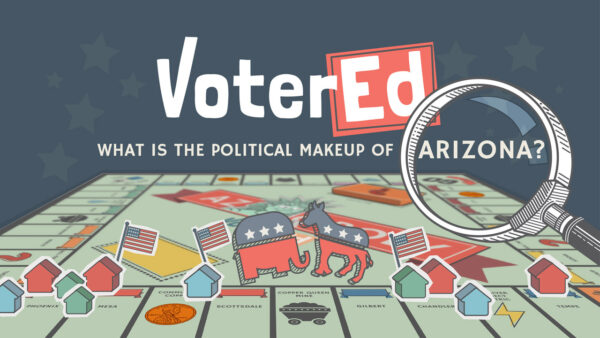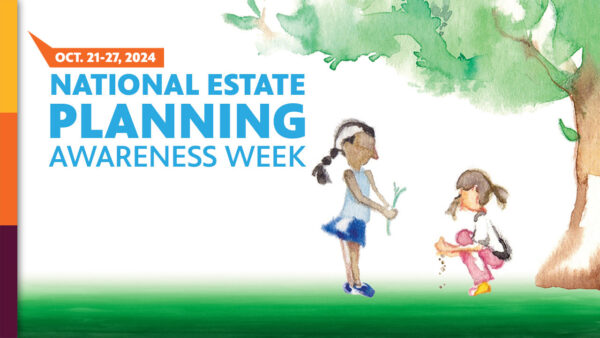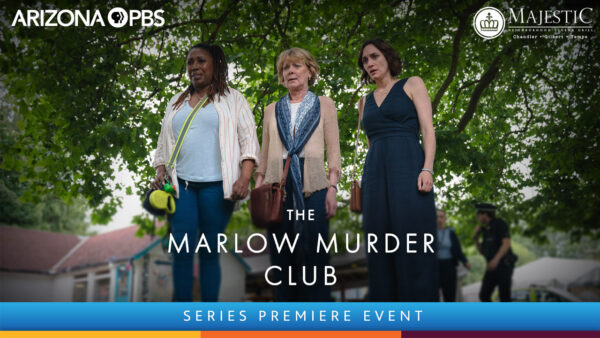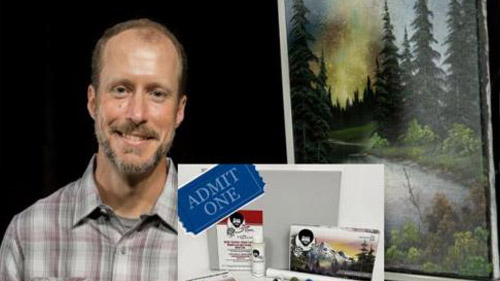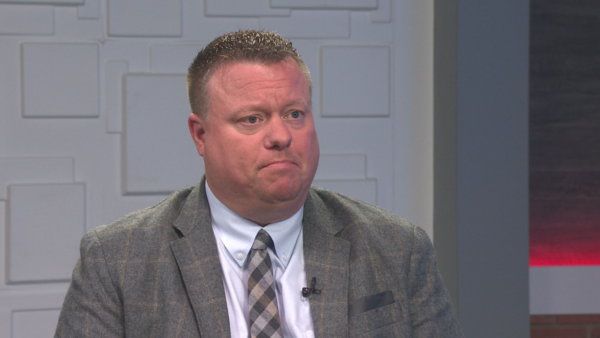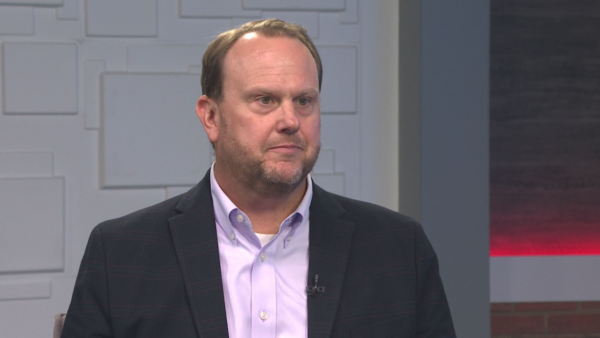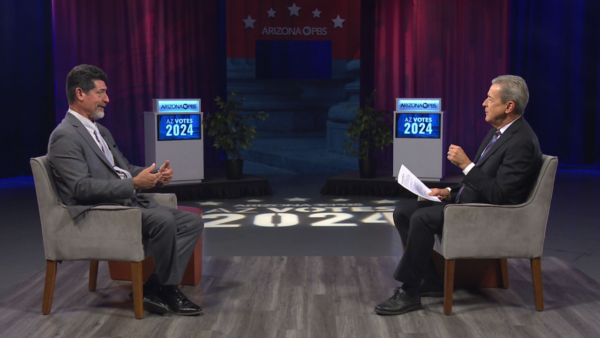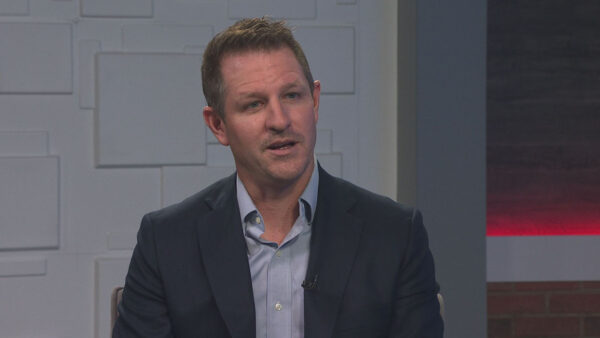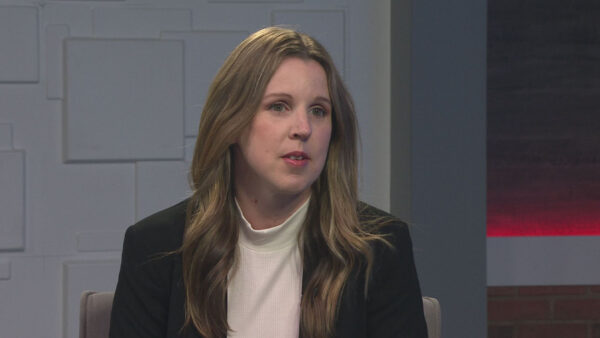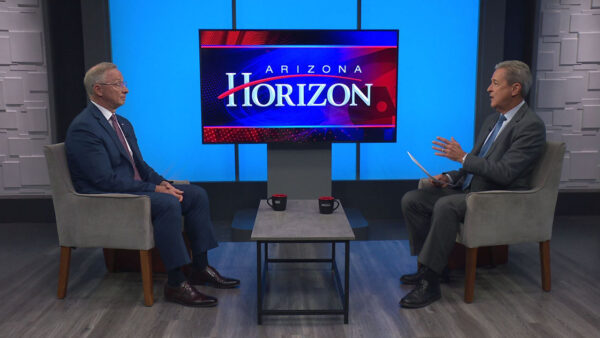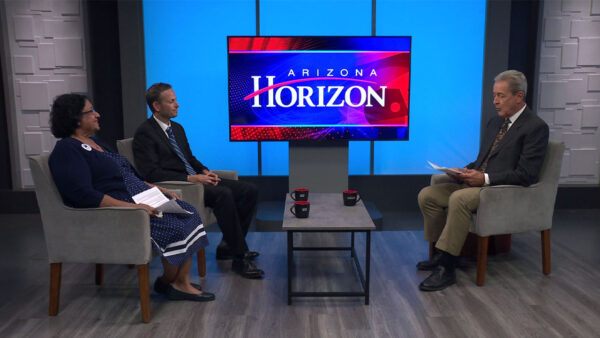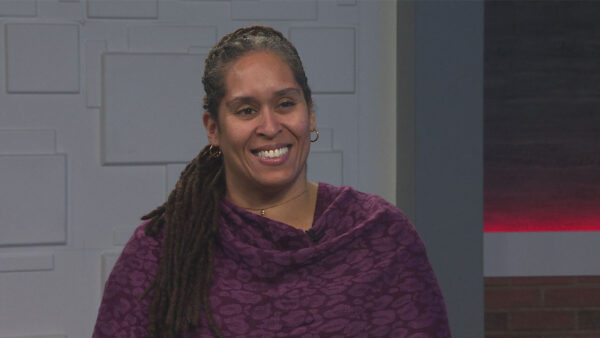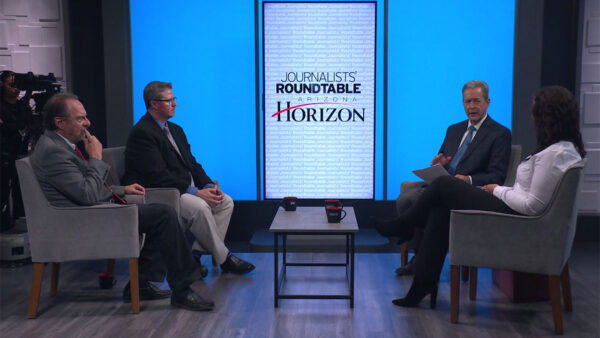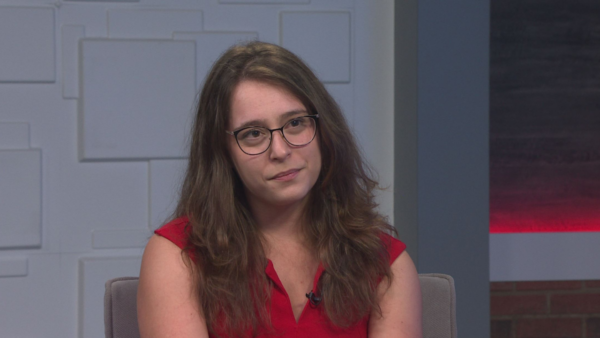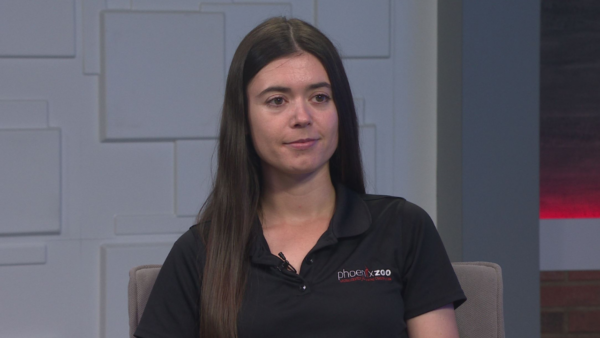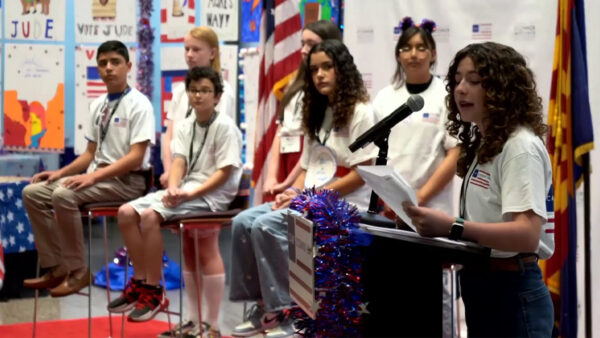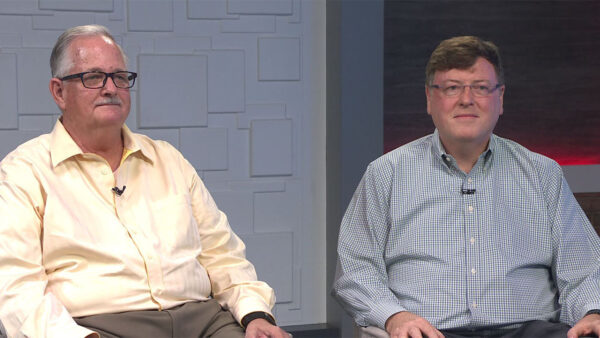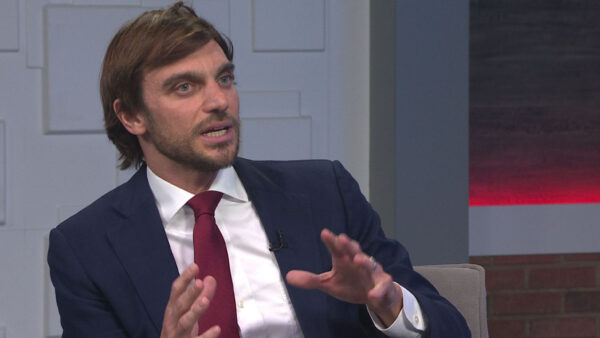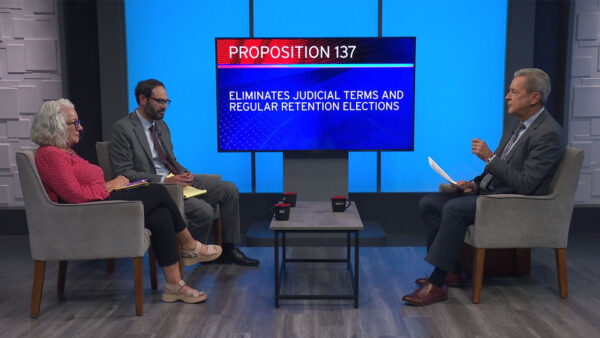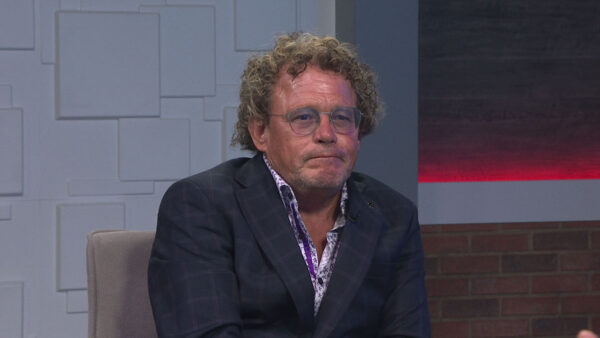Much has changed in the media landscape since the Public Broadcasting Act was signed 50 years ago, but PBS President Paula Kerger believes the need for public broadcast has not.
Speculation on the future of PBS arose in January, when the proposed White House budget cut funding for public broadcast. This sparked a national campaign to raise awareness as to the services offered by the beneficiaries of the public broadcast federal funds.
“We focus always on the people that watch as citizens,” Kerger said. “We really try to develop out content and ideas that we think are important, and that will make a difference.”
. The public broadcasting service, better known as PBS, started operations in 1970 and now has over 350 member stations, including Arizona PBS. Joining us now is PBS president and CEO, Paula Kerger. Welcome back. Good to see you again.
Paula Kerger: It's wonderful to be here again.
Ted Simons: We have a lot to talk about here. Let's get started with the basics. How do you define pbs?
Paula Kerger: Some people think it's Paula’s broadcast service but that's not true. The two words, public and service, when we were created, it was with the idea that media had the idea to not just be an entertainment device but educational and inspirational. It was 50 years ago that Linden Johnson signed the public broadcasting act that there was a potential for an emerging public media that had the possibility of being able to connect to people across the country no matter where you live or your economic means and could provide content to make a difference in the lives of families and communities.
Ted Simons: Where does pbs stand in the current broadcast landscape?
Paula Kerger: Interesting, 50 years later, very much in the same place. There are more channels than were around when Linden Johnson signed the act, there is a space that we occupy that is singular. We focus always on people that watch as citizens. We are not driven by a commercial imperative by every decision we make. We try to develop content and ideas that we think are important and will make a difference. That guide star was there at the beginning and continues through to today.
Ted Simons: That commercial imperative, how difficult is it not to dream in that direction?
Paula Kerger: It's tempting. You look at others that have done well and an explosion of reality content. We have stayed the course. Someone said to me, as you try to imagine the future, people always focus on how you need to change. As Wayne Gretzsky used to say, skate toward where the puck is headed, not where it is. What is equally important is to figure out what are the aspects of the organization's work that need to stay the same. That's where the focus on high quality content, content of consequence which sounds high fluting, but it's contents that makes a different. Story telling takes different forms. We have an active presence in digital. We have explored in technology like virtual reality and others. No matter where we are and what frame we are using in the story telling, the one thing at the heart is that we look for authentic stories and tell them as well as they can be told.
Ted Simons: I was going to ask about the changing media. It's a different world out there. A lot of eyes are looking at a lot of screens, some small. Where does pbs fit into that?
Paula Kerger: Pbs has been about creating conversation. The idea of a tool like social media, creating conversation around the subject, 18 hours with Ken Novak on the Vietnam war. Veterans wanted to talk to other veterans. Social media was a piece of it. Many screenings, I know you had two here in phoenix. That was a great opportunity for people to talk to one another. The thing about social media, and i spent time with Humphrey fellows at the Cronkite school, important as people being able to comment and talk about things they observe, they are not trained journalists. As I would not want someone off the street to operate on me if I had a problem with my arm, I also would hope that to understand the important issues of the day, that someone trained to ask the hard questions, to ferret out the truth is supported. I think that this idea of social media and professional journalists together actually gives us a richness of information. We have to be able to navigate it and understand the source of the information we are reading.
Ted Simons: The seas can be rough at times.
Paula Kerger: Kids say things that are outrageous. Where did you read that? It was on my phone. Was it friend or the local newspaper? It's different.
Ted Simons: Let's talk about funding. How much federal funding does pbs receive?
Paula Kerger: Funding from the federal government goes to the stations. It represents about 15% of the overall economy of public broadcasting. Some of the areas that are rural, I was in South Dakota. The money they get represents half of their budget. Alaska, 60% comes from federal government. During the latest debate over the future of federal funding for public broadcasting, the important thing to wrestle with is making sure the public broadcasting content is accessible to all. For many of our rural stations, it's critically important and without it, it would be a question. We have spent a lot of time this year talking to legislators and the important role pbs broadcasting plays.
Ted Simons: Is funding in serious jeopardy?
Paula Kerger: It was this year for sure. We started with a recommendation of no funds ott of the administration and house and senate working together and in a bi-partisan way put the money in. I think that's for constituents. It's the voices of individuals that make a difference. Legislators care about the people they serve at home. If the people they serve at home care about public broadcasting, which i know they do, they communicate that to the legislators which is where we sit today which is reasonable funding.
Ted Simons: So you reasonably optimistic then about the future of public broadcasting?
Paula Kerger: I think public broadcasting and the other through line that we have never been overfunded. I'm sure that's a shock to those watching you. I would say the through line, each and every year we need to make the case for federal appropriation. Legislators have to make difficult decisions. One should never assume the money will flow. Each and every year, our stations need to make the case that this is important. People have said to me over the last couple of months, i guess the battle is over.
Paula Kerger: It's an ongoing dialogue, ongoing discussion. That's how we should look at it.
Ted Simons: We hear it, I’m sure you hear it, not just in this particular environment. Pbs, font of liberalism. Out of touch with America. Enemy of the people. The whole nine yards. What do you make of that?
Paula Kerger: We have stations in every community in the country. At a time when a lot of media is consolidated, we are not. In fact, people think I run a network. I don't. All of our stations are independent, controlled by the community. This station here is controlled by Arizona State University. It's part of the university. I think it matters when your media organization is in fact in your backyard. I think you tend to trust it more. 14 years in a row, we have been deemed the most public institution. I think the trust is born of many years of great work. When you think of how we are funded, we rely on the funding of individuals. Individuals fund organizations they trust. I'm not going to comment on the rest of media. That's not my responsibility. I will comment on public broadcasting. We have done a good job building relationships and we did research earlier in the year to see where people stand with public broadcasting, people in urban, suburban, small town rural communities identifying as democrat and republic and independent and across all breakdowns, 76% of people that identified voting for the president, felt public broadcasting was important, and they would ask congress to look elsewhere for cuts and this is what we saw in terms of funding. The liberal claim of broadcasting doesn't stick with us.
Ted Simons: Do you think nonprofit continues?
Paula Kerger: It's a piece. There are commercial organizations doing well with journalistic work.
Paula Kerger: There is a new initiative called report for America like teach for America but focused on getting young, up and coming journalists mostly which is where we see the greatest decrease in reporting. If that is to continue it will be supported by philanthropic dollars. I think it will be a blend of corporate and not for profit.
Ted Simons: We have about a minute left. What is the legacy for pbs?
Paula Kerger: It's the lives of the people we impact. I talk to people all the time that grew up with sesame street or learned to cook with Julia child’s or saw learn to dance on public television. People say how do you measure success? I measure success by those kind of stories. If we can broadcast something that has the possibility of sparking something in a small child or adult, that's our enduring legacy.
Ted Simons: Thanks for being here.
Paula Kerger: Good to see you.
Ted Simons: Tomorrow on "Arizona Horizon," the Herberger theater center in phoenix adds three new resident companies to increase the diversity of performances. That's Tuesday on "Arizona Horizon." that is it for now. I'm Ted Simons. Thank you so much for joining us. You have a great evening.
Paula Kerger: President, PBS
